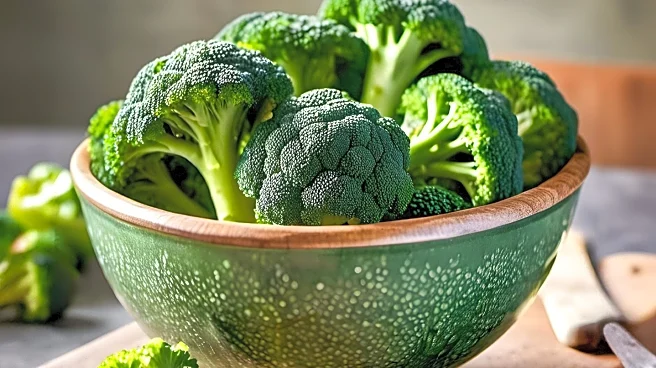What is the story about?
What's Happening?
Recent research published in BMC Gastroenterology highlights the potential of cruciferous vegetables in reducing the risk of colorectal cancer. The study reviewed data from nearly 640,000 individuals, finding that those who consumed 40-60 grams of cruciferous vegetables daily had a 20-26% lower risk of developing colon cancer. These vegetables, including broccoli, cauliflower, and kale, are rich in phytochemicals like sulforaphane, which are believed to have protective effects against cancer. The findings suggest that incorporating these vegetables into daily diets could be a simple yet effective strategy for cancer prevention.
Why It's Important?
Colorectal cancer is a leading cause of cancer-related deaths in the United States, making prevention strategies crucial. The study's findings offer a promising approach to reducing cancer risk through dietary changes, potentially impacting public health guidelines and individual dietary choices. By emphasizing the consumption of cruciferous vegetables, the research supports a shift towards plant-based diets, which could lead to broader health benefits beyond cancer prevention, including improved heart health and reduced inflammation.
What's Next?
The study encourages further exploration into the specific compounds within cruciferous vegetables that contribute to cancer prevention. It also suggests the need for public health campaigns to raise awareness about the benefits of these vegetables. As research continues, there may be developments in dietary recommendations and potential collaborations with food industries to promote the consumption of cruciferous vegetables.
Beyond the Headlines
The findings highlight the importance of dietary habits in disease prevention, underscoring the potential of food as medicine. This research may influence cultural perceptions of diet and health, encouraging a more proactive approach to nutrition and wellness.
















